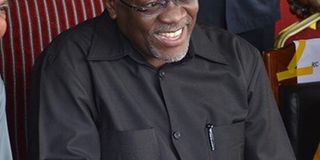OPINION: Tanzanians know how to have their way

President John Magufuli
Will the chickens come home to roost soon – or will Tanzanians have their way as usual?
I have no idea on that, but were the late Prof Ali Mazrui around, he would probably write extensively on what is happening in Tanzania today.
Recent comments made by Africa’s richest man, Aliko Dangote (pictured), come to mind here. A man not known to stoke the fires of controversy, Dangote was quoted saying – rightly or wrongly – that Tanzanian investment policies were scaring investors, extant and prospective.
Perhaps as expected, the media immediately described Dangote’s remarks as criticism of President John Magufuli’s government. And even before the dust had settled on the kerfuffle, it is seemingly becoming routine that any untoward comments on matters to do with investment are countered with the vehemence they deserve.
In this case, the Minister for Trade, Industry and Investment, Charles Mwijage, went live to claim that Dangote does not know fully well our investment laws – firing on all cylinders at persons who give the country’s investment climate a bad name.
Noting that we don’t have any investment problems, the minister conceded that Tanzania – like many other countries – does indeed have challenges which we are able, willing and ready to talk about. “Let Dangote come and see me personally,” Mwijage said, with a view to ironing out any difficulties he may have as an investor of considerable import in Tanzania.
All this reminds me of a piece I wrote months ago about “investment challenges” – and how the approach and tone we have taken in the past may have impacted the country’s investment climate. Prof Mazrui wrote extensively about Africa’s Triple Heritage. In my humble view, Tanzania is today caught in the web of a triple vortex betwixt the Presidency, official policy and legislation and civil service bureaucracy.
Apparently, the view from the government is that we have been losers for a long time in matters-investment. This view, shared by many, is that some of the so-called investors are in fact thieves who have been complicit in robbing Tanzania of its riches.
This school of thought is arguably in conformity with seizures of assets and shares acquisitions through amendments of already existing legal frameworks on mining and telecommunications, for example.
Doing this may sound logical: trying to recover, reclaim, lost ground. What is questionable, though, is the methodology used.
The second part of the web is the combination of policy and legislation – with either or both changed in midstream, thus playing havoc with the playing field.
If nothing else, this puts otherwise sacrosanct long-term title deeds, agreements, contracts, etc., into question – thus tarnishing what are nobble intentions to right past ills.
Finally, the overly-bureaucratic civil service is caught between a rock and a hard place: wanting to serve according to extant statutory frameworks and perforce going along with pronouncements from the relevant top-echelon authorities.
In any case, is grand corruption fighting back here? Forget the presidency – and even any gaps that might be in the existing legislative frameworks. The real threat to investment in Tanzania – if there really is a threat – is the go-slow that borders on sabotage within the behemoth that’s the civil service.
However, what could be seen only as a challenge that is easily surmountable is whether the civil service in its entirety is working diligently, or is on go-slow mode, protesting the manner and style in which the higher ups are implementing socio-economic development programmes.




